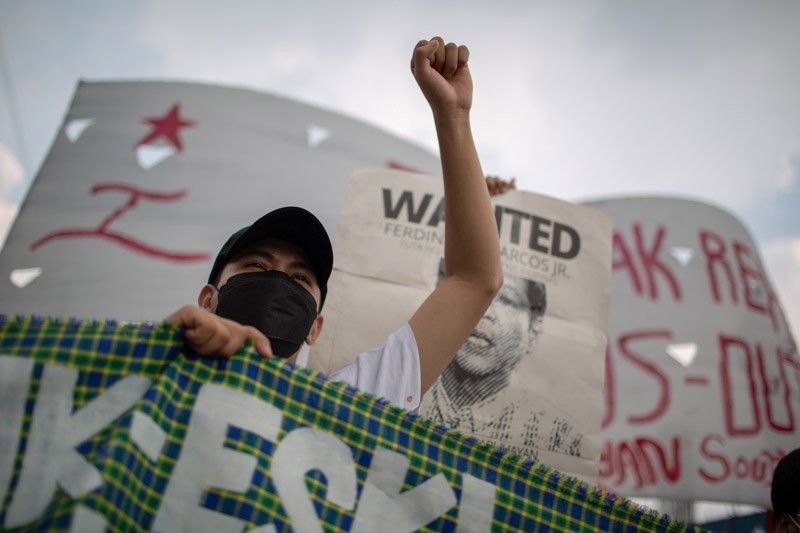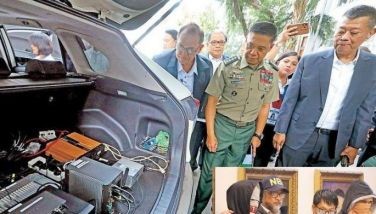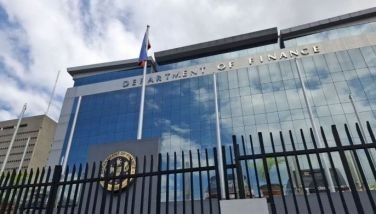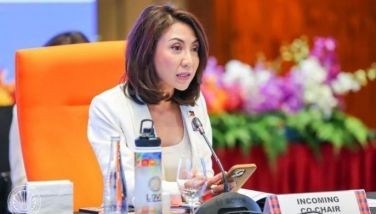Human rights situation, ICC not in Marcos' first SONA

MANILA, Philippines (Updated 6:09 p.m.) — Despite six years of a bloody “war on drugs” campaign that has brought the Philippine government under preliminary investigation by the International Criminal Court and left thousands dead, President Ferdinand Marcos Jr. made no mention of the human rights situation of the country in his first State of the Nation Address.
Delivering his first SONA, Marcos left out human rights and the ICC — among the topics that rights watchdogs had hoped would be discussed in the speech.
In the days leading up to his SONA, the Commission on Human Rights and civil society groups had to remind the government of citizens' rights to peaceful assembly and free expression to air their grievances to the government.
The CHR said: "As the Chief Executive presents the state of the nation and discusses its agenda and accomplishments through the SONA, it is equally important for the government to also provide space and enable the right of the people to peacefully assembly in recognition of the essence of public participation in national affairs and as part of a functioning democracy."
In the days leading up to the SONA, anti-Marcos protesters were initially barred from holding their rally — which has been historically part of SONAs in previous administrations — when the Philippine National Police arbitrarily declared Commonwealth Avenue, the usual protest area, as a “no rally zone.”
Bagong Alyansang Makabayan appealed the declaration and protests were eventually allowed in a portion of Commonwealth Avenue and only for a few hours.
SPECIAL FEATURE: A QC cafe carves out a safe venue as spaces for discourse shrink
Marcos also did not discuss the ICC's pending investigation into the controversial and deadly "war against drugs" of his predecessor, former President Rodrigo Duterte. Duterte, whose daughter is now vice president, was absent during the SONA.
ICC Prosecutor Karim Khan in a document dated July 14 has invited the Philippines to “provide observations” on his request to resume the investigation into the Situation in the Philippines.
The victims and their legal representatives meanwhile have until September 22 to submit any additional or different views on Khan’s request.
During the election campaign, Marcos said he would pursue Duterte’s "war on drugs" with the same vigor but with a different approach. Marcos said he will also focus on prevention, educating the youth on the ill effects of drugs and on improving rehabilitation centers.
Asked then if he would allow the ICC to investigate the "war on drugs", he pointed out that the Philippines has already withdrawn from the tribunal.
But since he won the elections, Marcos has stressed the "importance of ensuring high-level of accountability in terms of human rights [violations]."
Government lawyers are meanwhile mulling whether they should challenge the jurisdiction of the ICC or keep the communication lines open with the international tribunal.
No CHR appointments yet
Nearly a month into his presidency, Marcos has also yet to fill the seats at the Commission on Human Rights, the country’s watchdog that has long faced challenges and has been threatened in the last six years of the Duterte administration.
The Human Rights Watch has earlier urged Marcos to ensure a transparent and inclusive process in selecting qualified rights defenders at the CHR, in what they said is the president-elect's "imporant first test."
Phil Robertson, deputy Asia director of Human Rights Watch, said: “Marcos is in a strong position to set the Commission on Human Rights in a positive direction for the next seven years by selecting independent, credible rights advocates as commissioners.”
For the appointment at the CHR, Marcos must observe international standards stated in the Paris Principles to ensure their independence. Although non-binding, these standards were endorsed in the United Nations General Assembly.
Australian lawyer Rosalind Croucher said Marcos’ observance of these principles in his appointments at the Commission would be seen as a gesture of good faith.
"An effective [national human rights institution] relies on a strong, dedicated, and capable leadership to ensure it fulfills its mandate to protect and promote human rights," Croucher, who served as president of the Australian Human Rights Commission, added.
The elephant in the room
For human rights lawyer Edre Olalia, the omission of human rights in Marcos’ first SONA means the president, who is hounded by the family’s history of abuses during the patriarch’s Martial Law regime, means that “he does not give a hoot about it.”
“It speaks volumes even if deafeningly silent on issues that are outstanding from the past, the present and even the future. But this huge elephant in the room will keep rumbling during his administration,” Olalia, president of the National Union of Peoples’ Lawyers, told Philstar.com.
BAYAN Secretary General Nato Reyes, who led the People’s SONA along Commonwealth earlier on Monday, said this means that human rights, pursuing peace and fighting corruption may not be among the priorities of his government.
“It is a very disturbing sign,” he added.
- Latest
- Trending

































